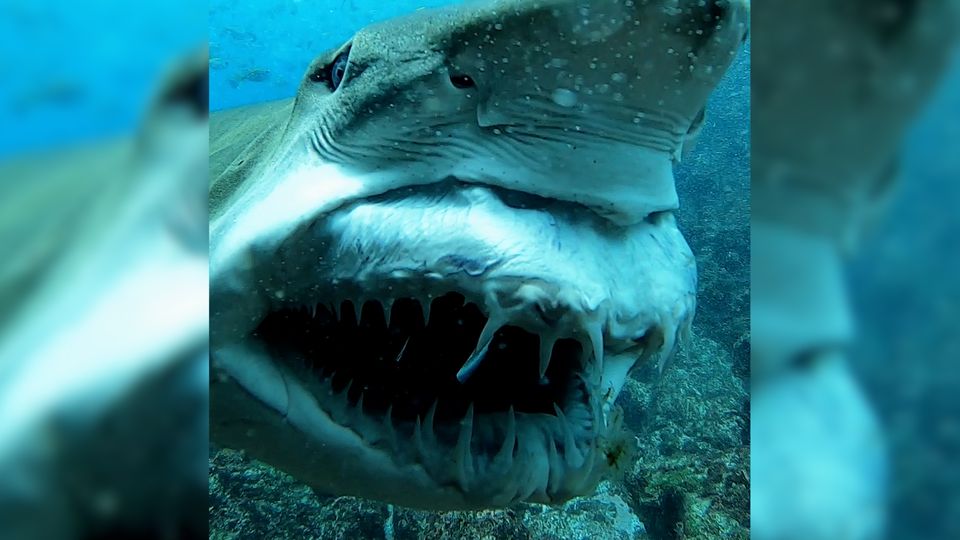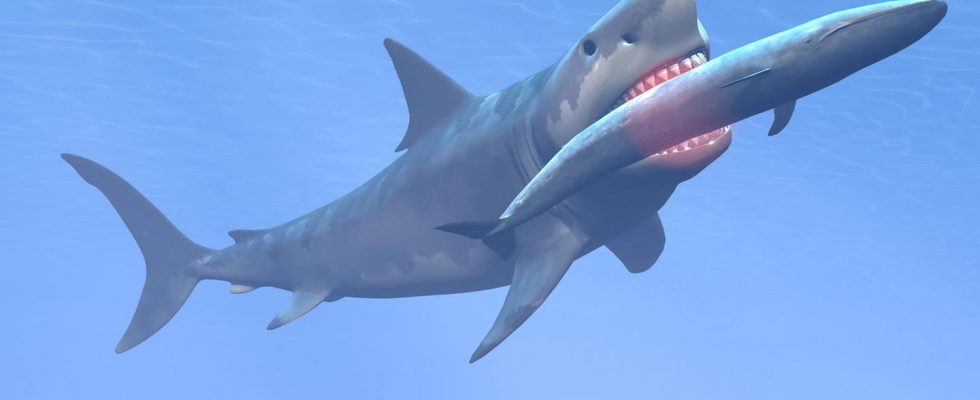paleontology
The world became too cold for the basking shark: scientists find an explanation for the sinking of the “Megalodon”
A megalodon eats a blue whale (icon image)
© Elenarts / Imago Images
It has not yet been clarified why one of our planet’s largest predators, the megalodon, became extinct. However, American researchers have now come closer to solving the mystery.
The megalodon was one of the largest sea predators that ever lived on earth. The great white shark’s relative was up to 20 meters long and weighed more than 60 tons. It could completely swallow prey up to eight meters long, which corresponds to the size of the currently most successful sea predator, the killer whale.
At some point, however, probably 18 million years ago, the megalodon became extinct. Numerous theories revolve around the reasons for this. For example, the simultaneous extinction of some minke whale species, its main food source, has been suggested as the trigger for its decline.
Megalodons became extinct about 18 million years ago
However, by analyzing fossilized megalodon teeth, scientists have now found that the extinct shark was partially warm-blooded, with a body temperature about seven degrees Celsius higher than estimated seawater temperatures at the time. This is the finding of a recent study published in the journal Proceedings of the National Academy of Sciences (PNAS).
country at cape
Diving with sharks and a bike ride through the dunes: This is South Africa for outdoor fans
The researchers observed how closely linked the carbon-13 and oxygen-18 isotopes found in the shark’s fossilized teeth were, CNN summarizes the research. This data would provide information about how warm the body was.
From this finding, the researchers deduced that the average body temperature of the megalodon was around 27 degrees Celsius. Megalodons were thus – at least partially – endothermic. This means they had the ability to regulate the temperature in certain parts of their bodies. According to the study’s leader, Kenshu Shimada of DePaul University in Chicago, this warm-blooded trait may initially have been one of the main reasons for the predators’ enormous size.
However, this means that they constantly have to expend a lot of energy to regulate their body temperature, which ultimately may have contributed to their extinction, since the timing of the megalodon extinction coincides with the cooling of the earth’s temperature, as CNN from the study quoted.

“Perhaps due to climatic cooling, there was a shift in the marine ecosystem,” which in turn led to a drop in sea level, changing the habitats of individual animals on which the megalodon fed and leading to its extinction.
On the one hand, the research results confirm earlier assumptions that the megalodon’s food supply was becoming scarcer and, on the other hand, by demonstrating its enormously high energy requirements at a time of falling temperatures, they also provide a reason for the shortage, which could have heralded the end of the basking shark.
Sources: PNAS, CNN, “New Scientist”


